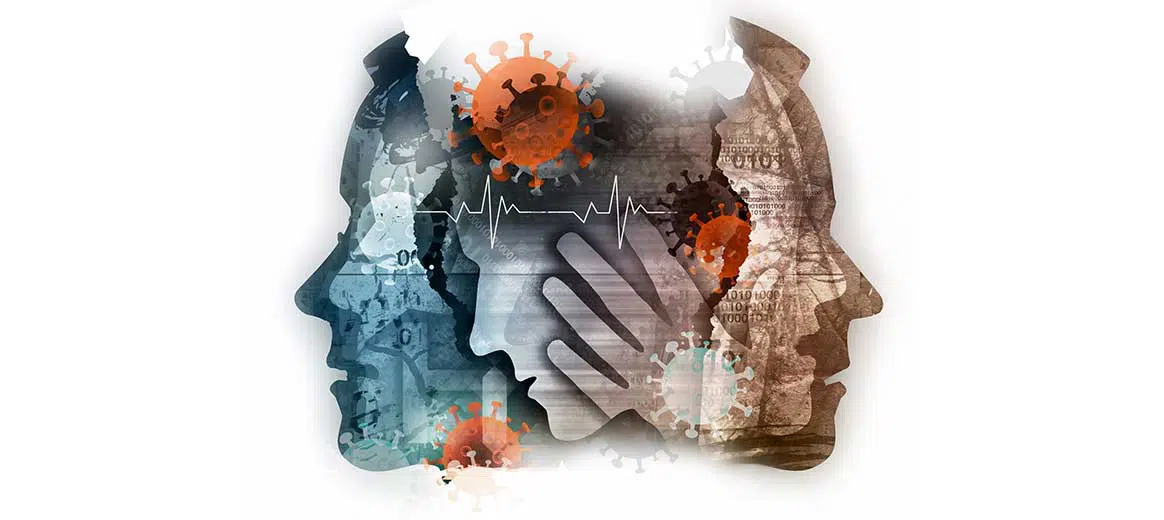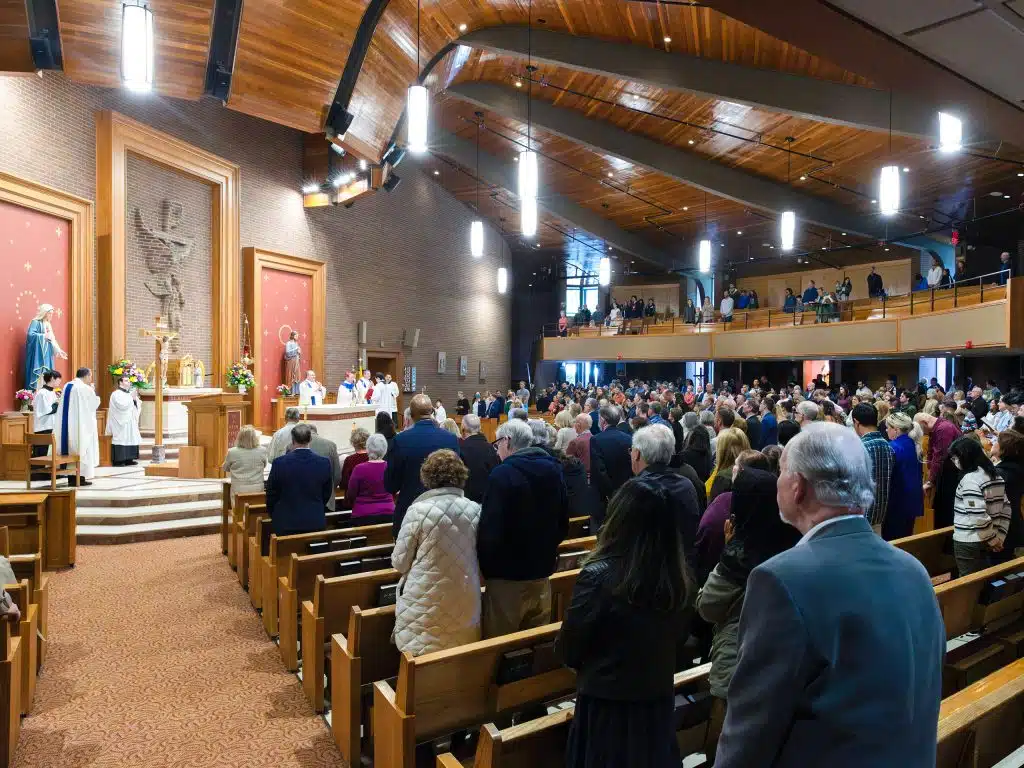As we make more adjustments in our lives this fall, there are constant reminders of how unfamiliar our world has become. This can lead to a vague sense of discomfort and even dread as we unwittingly find ourselves waiting, pessimistically, for the other shoe to drop. We wonder what might go wrong next or have concerns about a second wave of COVID-19 that hits during flu season. It may feel as though we have some form of post-traumatic stress disorder (PTSD).
In a way, we do.
Collective trauma is the result of a community experiencing a traumatic event simultaneously. It is an experience that profoundly affects those who live through it and in many cases changes the way the group or society approaches the world. An example of a collective trauma that impacted our community and nation are the terrorist attacks of Sept. 11, 2001. In the days and weeks that followed, much of the nation ground to a halt, shocked at the images coming out of New York, and feeling as though the world would never be the same.
The same can be said of our experience with COVID-19. While not as dramatic or violent as the attacks on 9/11, our society dramatically changed in the weeks and months that followed the first confirmed cases. We were forced out of our normal routines and away from our parishes, offices, friends and families. We felt overwhelmed, confused, angry and afraid. And the world, likely, will never be the same.
How then do we, as a community, heal from collective trauma?
Process the trauma
To heal from the collective trauma of COVID-19, we must first be willing to fully understand the impact. We tend to downplay or ignore negative elements in our lives, turning instead to distraction. We keep ourselves busy with tasks and activities rather than allow ourselves to fully engage with the emotional difficulties we experience. Is it any wonder then that we hear so many reports about heightened productivity for employees working at home during COVID-19? Is it truly a more efficient model for work? Or are we just trying to fill the day and avoid dealing with the anxiety and depression that accompanies isolation and stress?
We must be willing to look at how the pandemic has specifically and directly impacted us. And we must be willing to accept that isolation and quarantines take a toll. A recent psychological study looking at the impact of COVID-19 found that children and adolescents who were forced to quarantine were four times more likely to experience symptoms of post-traumatic stress than those who did not have to quarantine. COVID-19 has affected all of us negatively, albeit to varying degrees, and to pretend otherwise will only create additional problems for us in the future.
Make space to grieve
To process the toll of COVID-19, we must allow ourselves to grieve. The pandemic has cost all of us something, whether the loss of a loved one or not being able to see friends; we have all been affected. But one way to help acknowledge grief is to realize that we are not alone in our suffering. With collective trauma, we may all be impacted in different ways, but we can acknowledge that we are not alone in the challenges we are facing. We want to recognize that it is normal to struggle following periods of great stress. We should try to be as patient as possible with ourselves and the people around us as we all process the hardships of the past six months and our concerns about the future. Grieving takes time and cannot be rushed.
Healing
One of the key factors in healing from collective trauma is to limit media exposure. While we want to stay informed on any potential changes in the pandemic, if we are too engrossed in stories about COVID-19 or any other significant source of tension, this can increase stress and cause re-traumatization. Similarly, we need to make sure that we turn to reliable sources of information. During times of significant stress, rumors run rampant and can lead us to believe that the situation is much worse than reality shows. We need to give ourselves a break so our entire lives are not wrapped up in the pandemic.
It is also important to make sure we continue to reach out to others. Grief and depression lead to a tendency to withdraw, but we want to be able to turn to our friends, family, parish community and other support networks as we process the events that have impacted us all.
Horne is director of clinical services for diocesan Catholic Charities.
Find out more
To make a teletherapy appointment with a Catholic Charities counselor, call 703/859-3147 or 703/447-9402.



The Good Shepherd